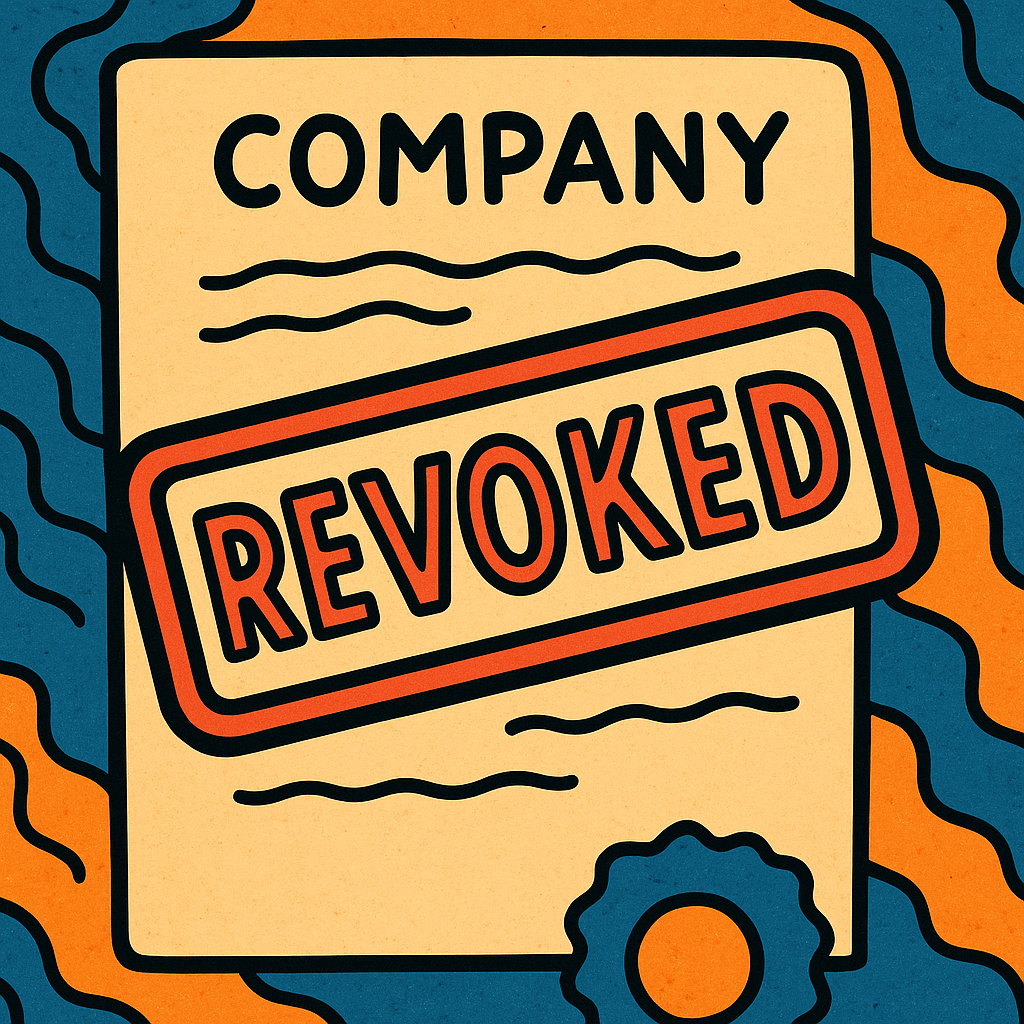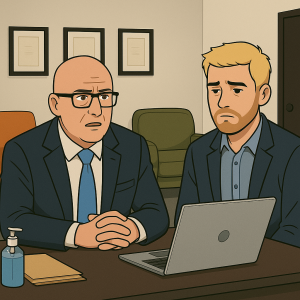Revoked But Still Posting: When LLCs Disappear but the Lies Don’t

At That Surprise Witness, we stand for truth, empowerment, and protection from harassment—online and off. That’s why it’s important to expose how people misuse legal systems and business terms to intimidate others while operating in bad faith themselves.
This post isn’t about gossip—it’s about recognizing patterns of manipulation, understanding how real victims are silenced, and giving people the tools to push back with facts. Because when misinformation spreads under the guise of “legal action,” it affects more than reputations—it threatens safety, truth, and justice.
When a Business Isn’t a Business
If your business has been revoked by your state, here’s what that means: you no longer have legal standing. No contracts, no brand enforcement, no LLC protection. You’re not “paused”—you’re nonexistent in the eyes of the law.
Yet, some creators continue to operate as if nothing’s changed—selling merchandise, throwing around trademarks, and threatening others over supposed “brand theft.” Except… there’s no brand left to defend.
The “™” Mirage
That tiny trademark symbol (™) looks powerful. But it only carries real weight when backed by:
- An active business entity,
- Use in commerce that’s consistent and legitimate, and
- A federal trademark registration or valid application.
If someone uses a ™ symbol after discovering a federal application already filed by someone else, and their own entity is revoked… that’s not protecting a brand. That’s playacting.
Let’s Be Honest About First Use
To be clear: someone else may have used the phrase earlier. But trademark rights aren’t just about being first—they’re about protecting that usage legally. You can’t claim exclusive rights to a brand you never registered, never maintained, and no longer use under an active business.
I filed in good faith. Under an active LLC. With legal counsel. That’s what matters in the eyes of the law—and the USPTO.
Legal Letters with No Legal Legs
Some folks love issuing cease-and-desist letters. They’ll toss in scary-sounding language, accuse you of criminal acts, and sign it with “Esq.”—even if they’re not actively licensed to practice law.
Heads-up: using “Esq.” when you’re not actively licensed can be considered unauthorized practice of law in some jurisdictions. It’s not just shady—it can be illegal.
If someone’s sending legal threats from a defunct entity while misrepresenting their legal credentials, it doesn’t make them an expert. It makes them a walking red flag.
Operating a Revoked Business? The IRS Might Notice
Still selling merch while your business is revoked? Not filing required annual reports? That’s not just a compliance issue—it could be a tax issue.
States can penalize unregistered operations. And if there’s income from that merch? The IRS might not love that it’s flowing through an inactive (or nonexistent) entity. This can trigger audits, back taxes, or worse.
Bonus: Copyright vs. Trademark (and “Esq.” vs. Actually Licensed)
Let’s break this down:
- Copyright protects creative works—videos, songs, blogs, etc.
- Trademark protects brand identity—names, slogans, logos.
And “Esq.”? That title only applies to people who are actively licensed attorneys. If someone’s signing emails that way but isn’t on the bar directory? That’s cosplay, not credibility.
“If someone’s using ‘™’ but never filed a trademark—and their business is revoked—they’re not protecting a brand. They’re playing pretend.”
Receipts Checklist (For When You’re Being Accused of Theft)
- ✔️ Active business registration in your state
- ✔️ Trademark application or registration on file
- ✔️ Documented first use in commerce
- ✔️ Screenshots, emails, or archived links showing your ownership
- ✔️ Legal counsel (bonus points if they’re actually licensed)
If they can’t match that? They don’t have a case—they just have a grudge.
Final Word
At That Surprise Witness, we don’t just tell stories—we arm people with truth. Whether you’re dealing with stalking, harassment, online defamation, or legal intimidation, our mission is the same: to support, educate, and empower victims with real tools—not fear tactics.
Facts Ain’t Defamation. And receipts always matter.
Need support or want to learn more about protecting yourself online? Visit ThatSurpriseWitness.net for emergency guides, filing tips, digital safety resources, and legal literacy content created for survivors—by survivors.






